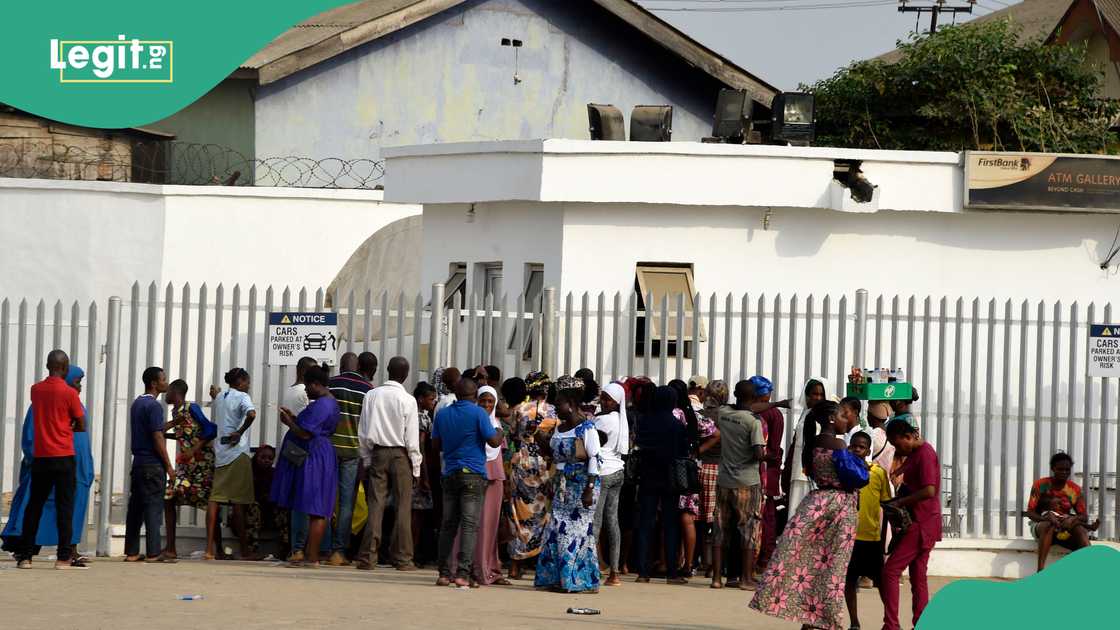Top Nigerian Banks With Highest Fraud Cases in 2025
- Access Bank, Nigeria’s biggest bank by assets has reported N1.64 billion loss to fraud in the first half of 2025
- The bank’s parent company Access Holdings, disclosed this in its financial report for the review period
- Experts say the bank’s report shows how fast financial fraud is evolving despite billions spent on technologies by financial institutions
Pascal Oparada is a journalist with Legit.ng, covering technology, energy, stocks, investment, and the economy for over a decade.
Access Bank, Nigeria’s largest financial institution by assets, has recorded a staggering ₦1.64 billion ($1.13 million) loss to fraud in the first half of 2025, a sharp 254.02 percent surge from ₦464.12 million ($320,478) a year earlier.
The revelation, contained in the latest financial report from its parent company, Access Holdings, underscores how rapidly evolving fraud tactics continue to challenge even the country’s most technologically advanced banks.

Read also
Fuel market shake-up: Imported petrol undercuts Dangote's price as Tinubu’s tariff policy takes effect

Source: Getty Images
Forged documents, false transfers behind the surge
According to the report, a significant portion of the losses stemmed from forged instruments, which alone cost the bank ₦831.96 million ($574,475).
Fraudulent transfers, unauthorized withdrawals, and account reactivations added another ₦617.11 million ($426,119) to the losses.
In total, Access Bank faced ₦2.25 billion worth of attempted fraudulent transactions in H1 2025, with nearly three-quarters resulting in actual financial damage.
Though the bank has not commented publicly on the report, the incident represents its worst half-year performance since June 2023, when it lost ₦5.46 billion to similar scams.
Fraud cases rising despite lower frequency
While the frequency of fraud cases dipped to 1,289 incidents in June 2025, down from 2,823 in 2023, the monetary value of each attack has grown significantly.
According to a report by TechCabal, the pattern highlights a disturbing shift from frequent, low-value frauds to fewer but high-impact heists.
Despite the massive losses, the amount still represents just 0.76 percent of Access Bank’s ₦215.92 billion ($149.09 million) profit for the first half of 2025.
Yet, experts warn that the rise in high-value frauds poses a growing systemic risk to the entire banking industry.
Between 2019 and 2023, Nigerian bank customers collectively lost ₦59.33 billion ($40.97 million) to financial fraud, with more than 80,000 victims in 2023 alone.
Banks invest more in tech
Ironically, the rise in digital fraud comes amid record tech investments by Nigerian banks.
Access Bank alone increased its technology spending by 147.94 percent to ₦193.52 billion in 2024 and has already invested ₦69.45 billion this year.
Despite these upgrades, cybercriminals continue to outpace traditional defenses.
Some banks, however, are making progress, United Bank for Africa (UBA) reduced its fraud losses by 45.35 percent to ₦288 million in H1 2025, while GTBank reported ₦225.42 million, up 41.67 percent due to a prior-year settlement with AXA Mansard.
FITC warns: Fraud is becoming smarter
The Financial Institutions Training Centre (FITC), which tracks fraud across Nigeria’s banking sector, reported a staggering 602.98 percent jump in industry-wide fraud losses to ₦3.29 billion in Q1 2025.
The number of reported cases also climbed 7.63 percent to 12,347, with only 63 involving bank staff and the vast majority perpetrated by external actors.
FITC identified online and mobile platforms as the most exploited channels — with 7,361 cases on web platforms, 2,875 via mobile, and 1,559 through PoS terminals.
“In 2025, fraud has evolved from being a volume issue to a value game,” FITC said. “To stay ahead, banks must think proactively, collaborate closely, and empower customers with awareness and digital literacy.”
A wake-up call for the financial sector
As Access Bank battles the fallout from its ₦1.64 billion loss, experts warn that the wave of targeted, high-value cyberattacks signals a dangerous trend.
Nigeria’s financial institutions, they say, must move beyond reactive measures and embrace intelligence-led, adaptive strategies to protect both profits and people.

Source: Getty Images
Fraud is no longer just a crime of opportunity, it’s a high-stakes game of innovation.
Scammers hack Nigerian bank, ateal N10 billion
Legit.ng earlier reported that the Federal High Court in Abuja has ordered an additional 30-day freezing of 818 bank accounts suspected of being involved in the alleged proceeds of crime from an N10 billion cyberattack on Hope Payment Service Bank.
The order, which the Inspector General of Police authorises, was granted by the court presided over by Justice James Omotosho on Monday, October 15, 2024. The court relied on a motion ex parte filed by the police.
According to the motion marked FHC/ABJ/CS/1358/2024, filed against James Akagwu Isaac, Akwubo Gosent, and others, including several banks, the IGP’s legal team said that the accounts via which the defendants were alleged to have received the crime proceeds were under investigation, hence the freeze.
Source: Legit.ng





